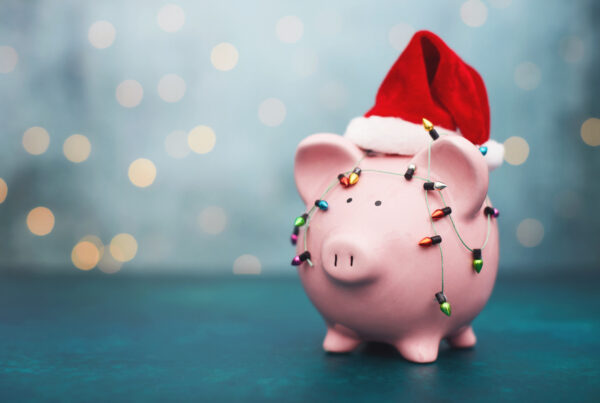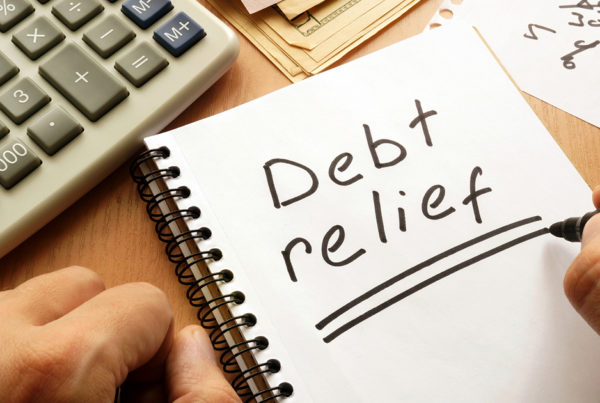Getting into debt can happen quickly. First, it’s an auto loan to help you get to and from work, then maybe it’s student loans or a mortgage, then comes a credit card and before you know it you’ve accumulated more debt than you ever intended.
And becoming debt-free is no easy task. In fact, only 20-25 percent of Americans are debt-free.
Debt comes in many different forms including unpaid credit card balances, car loans, student loans and many more. But what is the best way to tackle debt?
Check out these tips to help you on your journey to becoming debt-free.
Increase your debt repayment percentage
Each time you receive a paycheck, use a set percentage of your income for debt repayment. Typically, the financial institution or credit card company will only require you to pay off about two percent of your credit balance each month. Try to pay off at least 15 percent of your balance to stay on track.
If you were previously paying 15 percent of each paycheck and you can pay more, consider increasing the percentage so you can pay off your debt sooner. When it comes to larger chunks of debt, such as credit card debt and loans, the sooner you can pay them off, the better.
Consolidate higher-interest debt to a lower rate loan or credit card
Managing several credit cards (such as one from your financial institution, one from your favorite gas station, and one from a store) can make it tough to remember due dates and keep up with payments. The same goes for multiple vehicle and personal loans. Take a look at and physically write out your loan and credit cards, the interest rates for each, the amount you pay each month, and the balance you have left to pay. This will help you identify a higher rate loan or credit card you’d like to consolidate, or help you identify which interest rate is highest and which debt you may want to tackle first. Consider transferring your credit card balances to Verve for one payment, one due date and 0% APR for 180 days.
Pay off larger debts with savings
If you have a comfortable amount of savings stored away, it may be a good idea for you to use part of your savings to repay larger debts with high-interest rates. Be sure to keep some savings in your account to continue to gain dividends (or interest), but especially if savings rates are low, the extra cash isn’t earning much and you could save more in interest over time if you pay off your debt instead.
Put your tax refund check to good use
When you receive your tax refund check, it’s smart to put the funds to good use, rather than spending it all. Paying off an entire debt with your refund check will give you peace of mind and satisfaction for a much longer amount of time.
Plus, when you have extra money later from no longer paying interest on the debt you paid, you can thoughtfully use that money for a vacation or other expensive item you’ve been saving for.
Sell unused items
Spend some time going through your storage space and looking through your unused items. You may be surprised by what you’re still hanging on to and there may be some items that you no longer need or necessarily want.
Have a garage sale or sell the items online to make some extra cash. Like the tax refund check, use this extra cash you make to tackle one debt, so you no longer need to pay interest moving forward.
Continue this habit of going through your storage and selling unused items every so often. Even if you only sell some items once a year, it can make a difference in reducing your debt.
Rethink the non-essentials
If you’re working to pay off debt, your top priority is saving or making extra money to pay it. In order to do this, there are some things that you may need to do less often to save some extra cash.
Some ideas of things that you could do to save extra money are:
- Don’t eat out as often. The costs of eating out add up quickly, so try cooking more meals at home and you’ll quickly start to see the savings.
- Review your monthly subscriptions. You may not even remember all the subscriptions you currently have, so chances are you don’t need all of them. Decide which subscriptions you use the most often and cancel the ones that aren’t necessary.
- Don’t buy in bulk. Oftentimes, you only need one or two of something, so don’t spend the extra money to buy in bulk and dig deeper in debt if you don’t need to. Only buy in bulk if there is a specific purpose for the bulk size.
- Don’t buy brand name products. With many things, the generic brand is just as good as the name brand. If it does the same job, consider buying the generic branded product.
Ask another set of eyes to review your financial situation
Sometimes, looking at your finances over and over again can make you feel like you are spinning your wheels. Try talking to a trusted friend, family member or professional financial coach (like Verve’s certified coaches) about your goals to become debt free. Sometimes a different perspective can give you new ideas to consider and the added boost of some accountability when they ask you how it’s going.
All this talk about becoming debt-free got you thinking about other ways to avoid debt? Check out our blogs on when to refinance loans and what you need to know about debt in retirement for more information.






 Federally Insured by NCUA |
Federally Insured by NCUA |  Equal Housing Opportunity |
Equal Housing Opportunity |